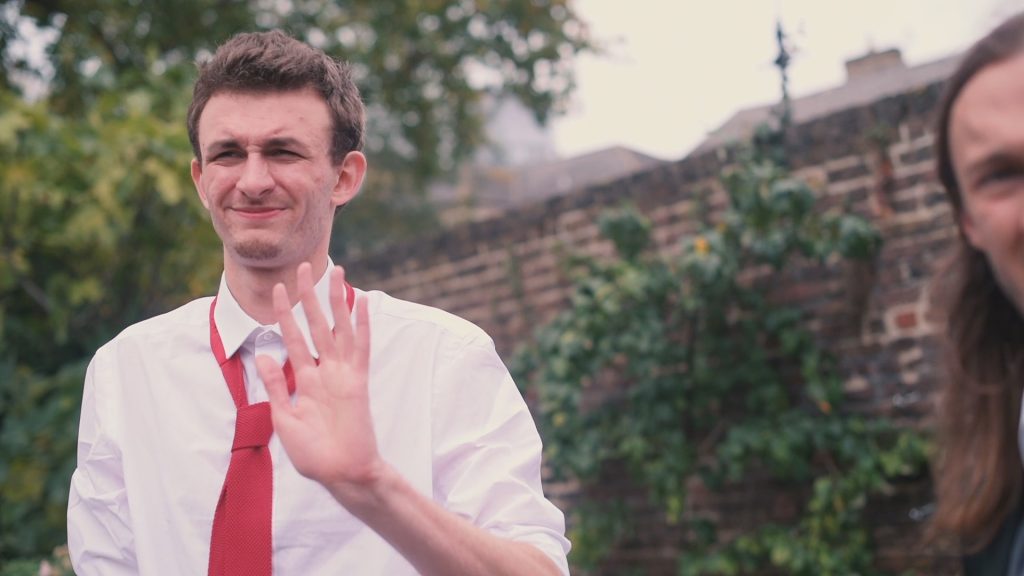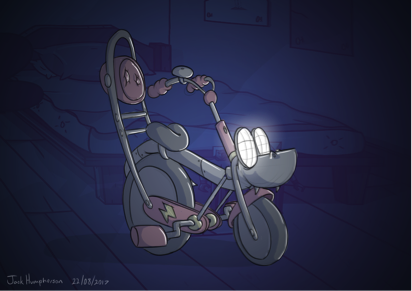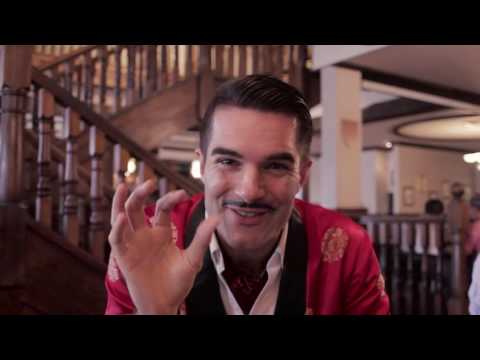Trying Not To Lose Yourself In Other People
By Joz Norris.
I’ve found this blog very difficult to write, weirdly. The initial draft essentially waxed lyrical about some of my comedy inspirations when I was growing up (Marion & Geoff and The Trip in particular) and praised the fact that neither of those were obviously mass-appeal, marketable ideas, but both of them really doubled down on creating a feeling, on telling a sad story through a comedic lens that would make the audience feel things and rethink their relationship with the world around them.
Then I talked a bit about how I’d always tried to go back to that idea with every piece of comedy I’ve ever made – the question not of “How can I make a version of this idea that as many people as possible will enjoy?” but rather “How can I make a version of this idea that communicates exactly the feeling I had that made me come up with it?” And then I read the whole blog back and said to myself “Oh, honestly, who cares what you think? Why does any of this matter?”
It’s tricky sometimes knowing which of the voices in your head are telling the truth. So, as I always do, I went back to the original idea of what I was trying to express in this blog and tried to work out how to neatly express that idea, with as little waffle as possible, and start it from scratch.
I guess I find myself concerned these days with the notion that “comedy,” as an idea, has an increasing overlap with an industry that seems more concerned about the creation and proliferation of content than it does about communicating and expressing original and sincerely-felt ideas. This is not a blanket rule for the comedy industry as a whole and I don’t want to imply it is – comedy is full of hard-working, brilliant people trying really hard to express ideas of incredible complexity and originality and depth. But it’s a worrying social trend that is gradually changing the way audiences approach what comedy is and what it should be doing, I think.
And that’s why I often go back to Marion & Geoff. I discovered that show at 13 and found myself glued to it every time it was on, hanging on every word of it, and laughing until I ached while also feeling this huge, yawning, abyss-like feeling opening up in my chest at the sadness of it all. The final shot where Rob Brydon walks away from his car with his kids created a feeling in me that nothing has ever repeated (until the final episode of the first series of Flowers a couple of years ago), and I think maybe put me on a collision course with the life I ended up leading.
 I fell in love with the idea of comedy being this medium that didn’t exist for simple entertainment, but it existed to reframe human experience as somehow ridiculous. It could show you the saddest things in the world and show them to you as though they were somehow daft, or stupid, and open up these incredibly deep wells of feeling inside you and reframe your entire relationship with yourself. I think my whole life has been trying to catch up to that feeling, and comedy is the lens through which I do it.
I fell in love with the idea of comedy being this medium that didn’t exist for simple entertainment, but it existed to reframe human experience as somehow ridiculous. It could show you the saddest things in the world and show them to you as though they were somehow daft, or stupid, and open up these incredibly deep wells of feeling inside you and reframe your entire relationship with yourself. I think my whole life has been trying to catch up to that feeling, and comedy is the lens through which I do it.
Everything I’ve ever made has in some way involved my going back to that and asking myself – how do I get that feeling across through this idea? How do I create that feeling in my audience? I think because I’ve been so fixated on that question, I haven’t always succeeded. Sometimes I’ve made work that’s too wrapped up in itself, and self-indulgence is a terrible thing because at the end of the day, what you do has to be about the people watching it, not about yourself.
At the Fringe this year I went with my best friend to see Paul Currie’s show Hot Donkey. My friend hasn’t always been a fan of some of the more self-indulgent comedy shows I’ve done, but was enchanted by Paul’s show. Even though some of the content of Hot Donkey is similar to some of the take-no-prisoners weirdness-for-the-sake-of-weirdness stuff you might see in a more self-indulgent show (pouring milk into somebody’s belly-button, say), the whole thing is done with so much obvious love and care and respect for his audience that you never feel for even one second that what Paul is doing is being done for anybody’s benefit but yours. But I would challenge anybody who saw Hot Donkey to come away from it and not agree that that show was created in order to express a very specific feeling that Paul himself felt very intensely.
I recently shot a comedy pilot of a script I’d developed and co-written with anti-comedy legend Ed Aczel, one of the most naturally funny people in the world, which was sponsored by Tiger Aspect. Their involvement came off the back of a previous short me and Ed made in which we played two sweet, stupid, ineffectual, harmless idiots wandering around not knowing what they were doing, achieving nothing and having no impact on anybody else’s lives whatsoever, and then it ended. There were no jokes to speak of, and nothing that on paper seemed very funny. But what it did do was perfectly articulate the notion that was always at the centre of what I do – that people are ridiculous, and nothing matters very much.
It’s the first time a big production company has become directly involved in going into production on an idea of mine, and granted, I’m a long way off actually making a whole comedy series of my own yet, but it meant a lot to me that this show of commitment on their part didn’t come off the back of a lot of hustling or a concerted attempt to make something popular with an obvious in-built audience of its own. It came off the back of me and Ed trying to make something quite sincere, that worried about what it was trying to say first, and about what other people would think of it second, if at all.
Again, I still don’t really know what I’m trying to say with this blog. I think we’re at a point where it’s easy to think that comedy is about being relatable, or popular, or making things that speak to as many people as possible. And on the occasions where I’ve become too self-reflective, too insular and too insistent on my own ideas, I’ve been hugely indebted to the producers, directors and collaborators I’ve worked with who’ve brought me back to earth and reminded me to consider other people and figure out how to make an idea accessible to them. But I also think the most important thing is the feeling you had in your heart and your chest when you first decided to do this, and that’s what everything has to come back to.
I’ll try to sum it all up in a nutshell with a recent experience – a few weeks ago I had a bad customer service experience and was ranting to a housemate about it. I was midway through the sentence “They couldn’t even be bothered to apologise,” and was at peak frustration, when I dropped a sealed carton of orange juice I was holding, which landed pointlessly on the ground with a dull thud, and I had to temporarily stop being angry, kneel down and pick it up. I felt in that instant the most piercing version of that same feeling that I’ve ever felt.
It turns out I didn’t need to be making all this stuff for all this time – the same inherent sense of how ludicrous we all are, and how little we ought to be worrying about things, can be summed up in a second of misplaced frustration and simultaneous clumsiness. So my new rule is – if what I make doesn’t make me feel like I just dropped some orange juice while ranting about a bad customer service experience, I don’t see the point in making it. I hope everybody works to similar rules.

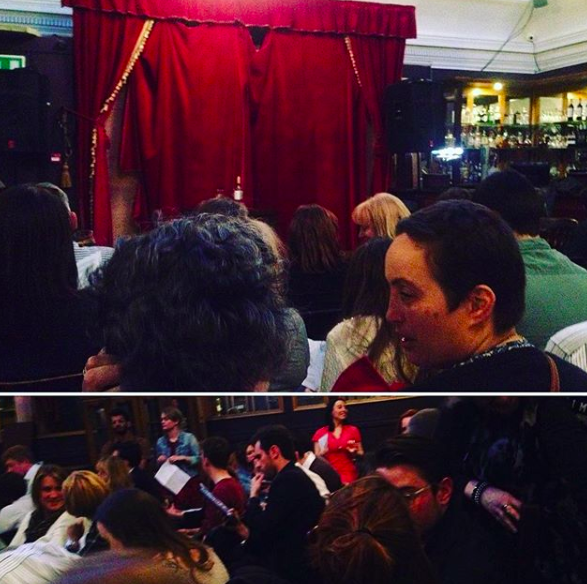
 Three thirty-minute plays come together to create a unique evening of theatre that explores the last century of women’s rights. Stevie’s piece ‘The Flour Girls’ is a surreal comedy that looks at the night in 1970 when British feminists flour-bombed the Miss World contest – from the perspective of two bags of flour…
Three thirty-minute plays come together to create a unique evening of theatre that explores the last century of women’s rights. Stevie’s piece ‘The Flour Girls’ is a surreal comedy that looks at the night in 1970 when British feminists flour-bombed the Miss World contest – from the perspective of two bags of flour… Sounds like the dream right? Brooke, Caitlin, Carrie and Fiona make up Belladonna Comedy. They run their own popular satire website and are shortly releasing their first book “New Erotica for Feminists”.
Sounds like the dream right? Brooke, Caitlin, Carrie and Fiona make up Belladonna Comedy. They run their own popular satire website and are shortly releasing their first book “New Erotica for Feminists”.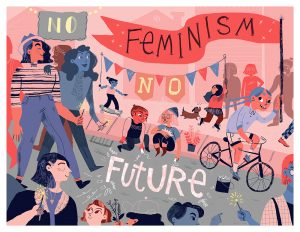 We set to work immediately, setting up the site’s infrastructure and branding (by illustrator extraordinaire Marlowe Dobbe:
We set to work immediately, setting up the site’s infrastructure and branding (by illustrator extraordinaire Marlowe Dobbe: 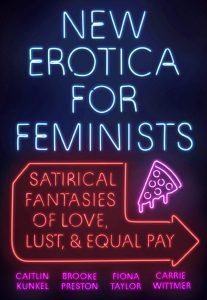
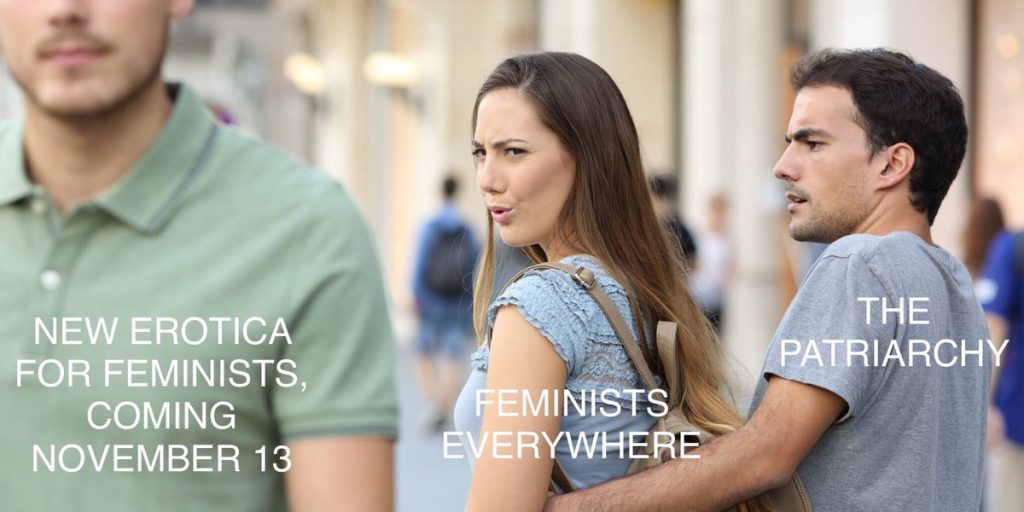
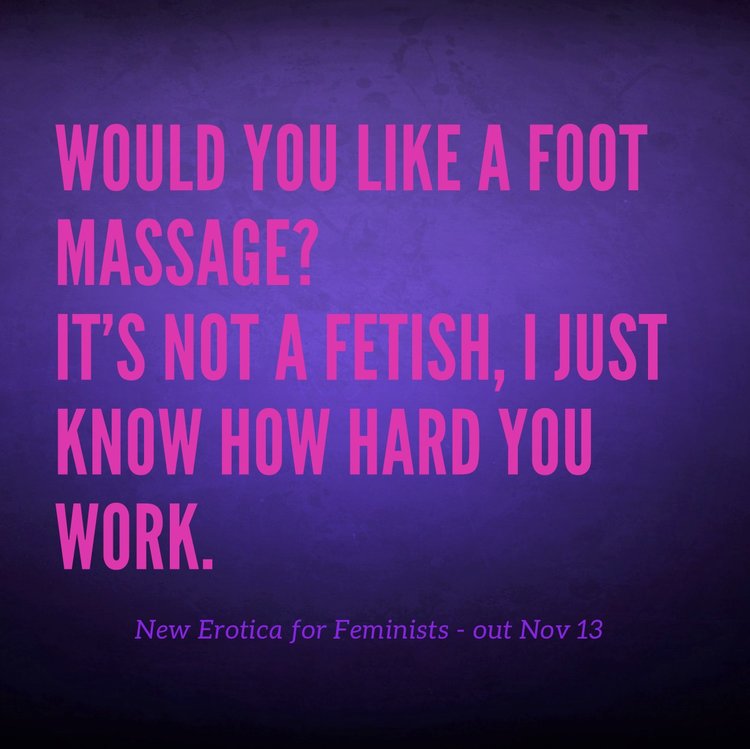
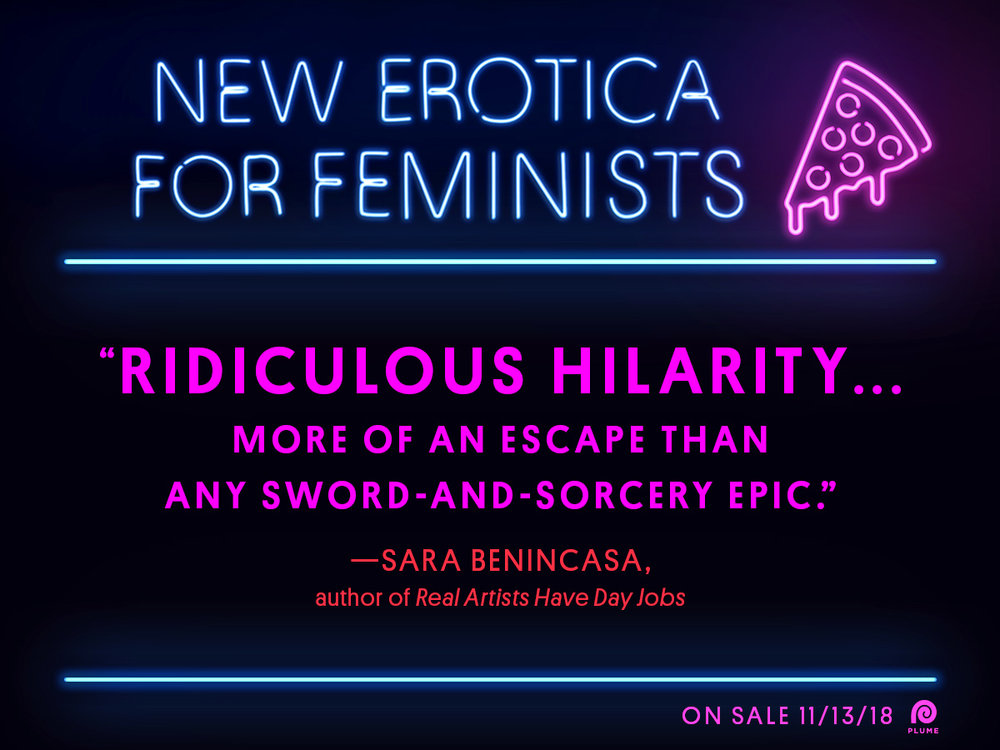
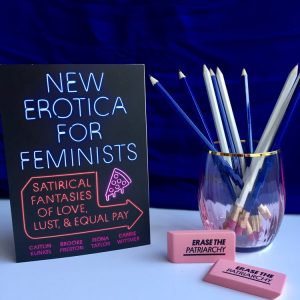 In the UK: Waterstones, Amazon, Apple Books, Sceptre’s website, independent booksellers and (in theory at least) everywhere books are sold. Ask your local bookseller to carry it!
In the UK: Waterstones, Amazon, Apple Books, Sceptre’s website, independent booksellers and (in theory at least) everywhere books are sold. Ask your local bookseller to carry it!
